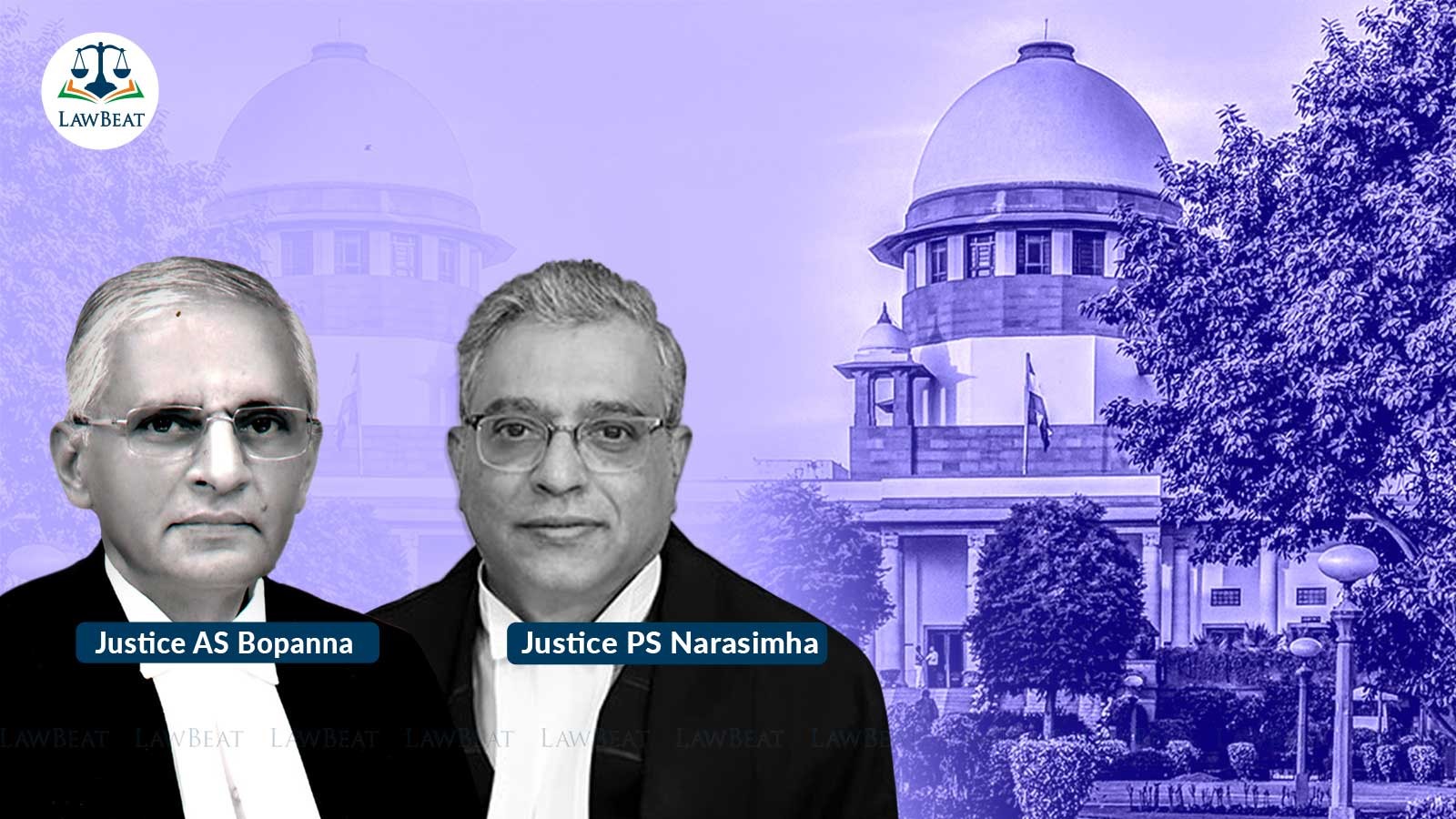Expletive-filled language itself not sufficient to make content obscene: SC

Court said that the language used in the context of the plot and theme of the web series 'College Romance', which is a light-hearted show on the college lives of young students, was not related to sex and did not have any sexual connotation
The Supreme Court on Tuesday said that use of vulgar and expletive-filled language could be distasteful, unpalatable, uncivil, and improper, but that by itself is not sufficient to make the content ‘obscene’.
A bench of Justices A S Bopanna and P S Narasimha allowed an appeal filed by Apoorva Arora and another against the Delhi High Court's order that had rejected a plea to quash a criminal case of obscenity lodged against actors and makers of the Web Series named 'College Romance'.
"It is well-established from the precedents that vulgarity and profanities do not per se amount to obscenity. While a person may find vulgar and expletive-filled language to be distasteful, unpalatable, uncivil, and improper, that by itself is not sufficient to be ‘obscene’. Obscenity relates to material that arouses sexual and lustful thoughts, which is not at all the effect of the abusive language or profanities that have been employed in the episode. Rather, such language may evoke disgust, revulsion, or shock," the bench said.
The appellants contended, among other grounds, that a higher threshold of tolerance must apply in the present case as the web series is a form of “pull media”, only available and accessible to those persons who wish to view it.
The complainant, Arvind Singh countered that the web series is freely available on the internet and is accessible to any person, including children, and hence must be regulated in the interests of public order, morality, and decency.
The bench, however, pointed out that where art and obscenity are mixed, it must be seen whether the artistic, literary or social merit of the work outweighs its obscenity and makes the obscene content insignificant or trivial.
"In other words, there must be a preponderating social purpose or profit for the work to be constitutionally protected as free speech. Similarly, a different approach may have to be used when the material propagates ideas, opinions, and information of public interest as then the interest of society will tilt the balance in favour of protecting the freedom of speech (for example, with medical textbooks)," the bench said.
For applying the test for obscenity to the allegedly offending portions of the web series, the bench said that it is important to take note of the approach adopted by the high court, which embarked on a wrong journey and arrived at the wrong destination.
The court said that profanity is not per se obscene as the reality of the high court’s finding was that once it found the language to be profane and vulgar, it had, in fact, moved away from the requirements of obscenity under Section 67 of the IT Act.
"There is a clear error in the legal approach adopted by the High Court in analysing and examining the material to determine obscenity," the bench said.
The court said that the high court had taken the meaning of the language in its literal sense, outside the context in which such expletives had been spoken.
"By taking the literal meaning of these words, the High Court failed to consider the specific material (profane language) in the context of the larger web-series and by the standard of an “ordinary man of common sense and prudence”. When we notice the use of such language in the context of the plot and theme of the web-series, which is a light-hearted show on the college lives of young students, it is clear that the use of these terms is not related to sex and does not have any sexual connotation. Neither did the creator of the web-series intend for the language to be taken in its literal sense nor is that the impact on a reasonable viewer who will watch the material," the bench said.
In the case, the bench said, the high court has incorrectly used the standard of “impressionable minds” to gauge the effect of the material and has therefore erred in applying the test for obscenity correctly.
"The High Court has made several remarks on the need to maintain linguistic purity, civility, and morality by retaining the purity of language and deprecating the representation of expletives-filled language as the “new normal”. The real test is to examine if the language is in anyway obscene under Section 67 of the IT Act," the bench said.
The court also said the high court committed a serious error in decision-making, saying the metric to assess obscenity and legality of any content cannot be that it must be appropriate to play in the courtroom while maintaining the court’s decorum and integrity.
"Such an approach unduly curtails the freedom of expression that can be exercised and compels the maker of the content to meet the requirements of judicial propriety, formality, and official language," it said.
With regard to free availability of the web series, the bench said, "While such anxiety is not misplaced, the availability of content that contains profanities and swear words cannot be regulated by criminalising it as obscene. Apart from being a non-sequitur, it is a disproportionate and excessive measure that violates freedom of speech, expression, and artistic creativity."
The bench concluded that the facts of the present case certainly did not attract Section 67A as the complainant’s grievance was about excessive usage of vulgar expletives, swear words, and profanities.
"There is no allegation of any ‘sexually explicit act or conduct’ in the complaint and as such, Section 67A does not get attracted," the bench said.
Case Title: Apoorva Arora & Anr Etc Vs State
